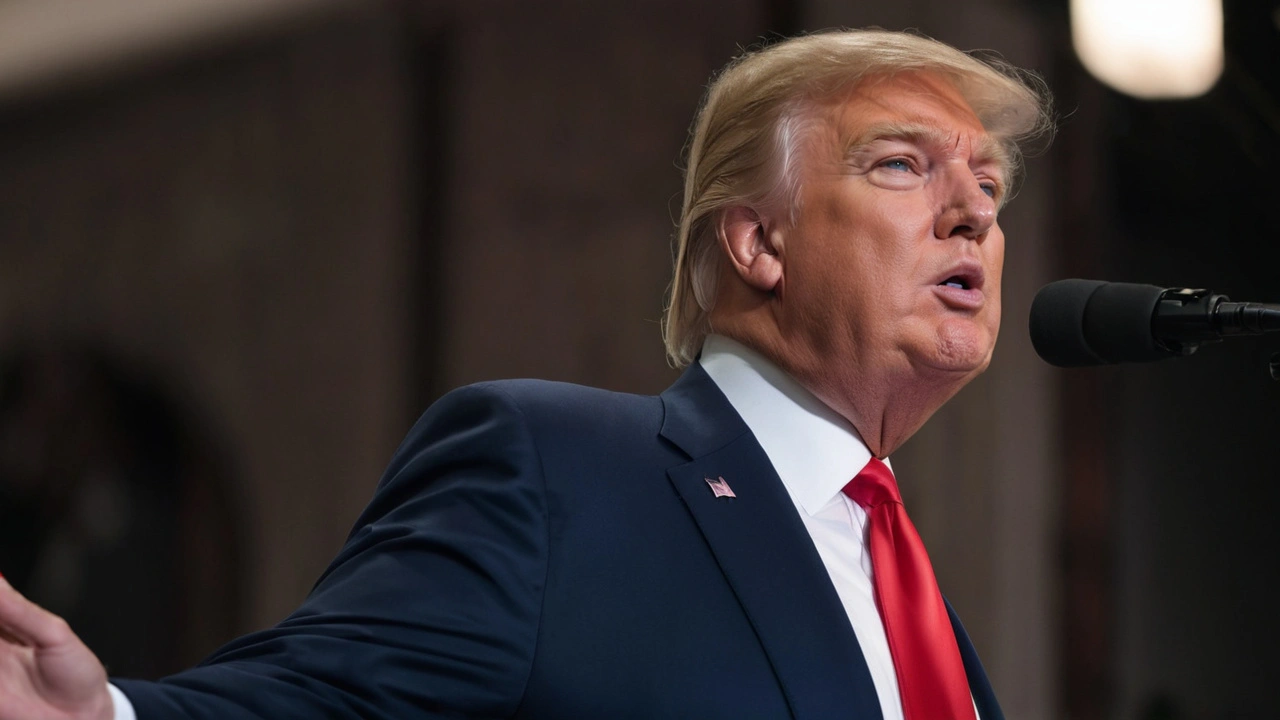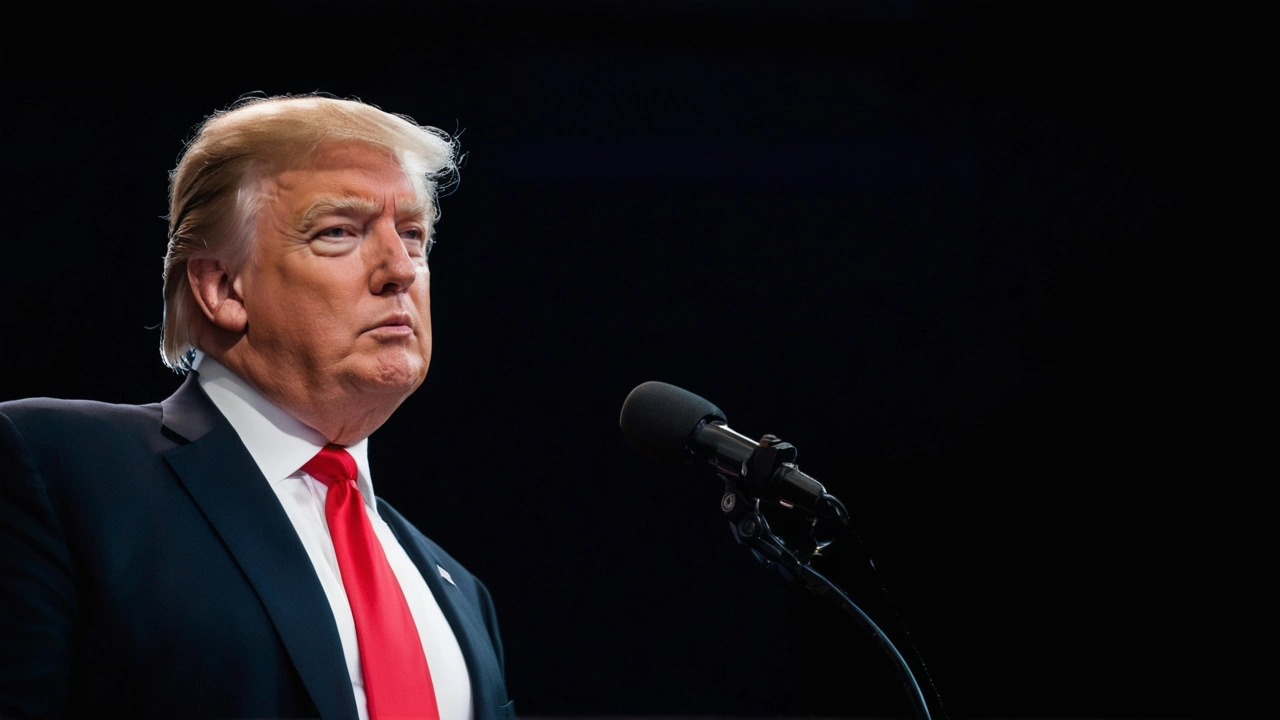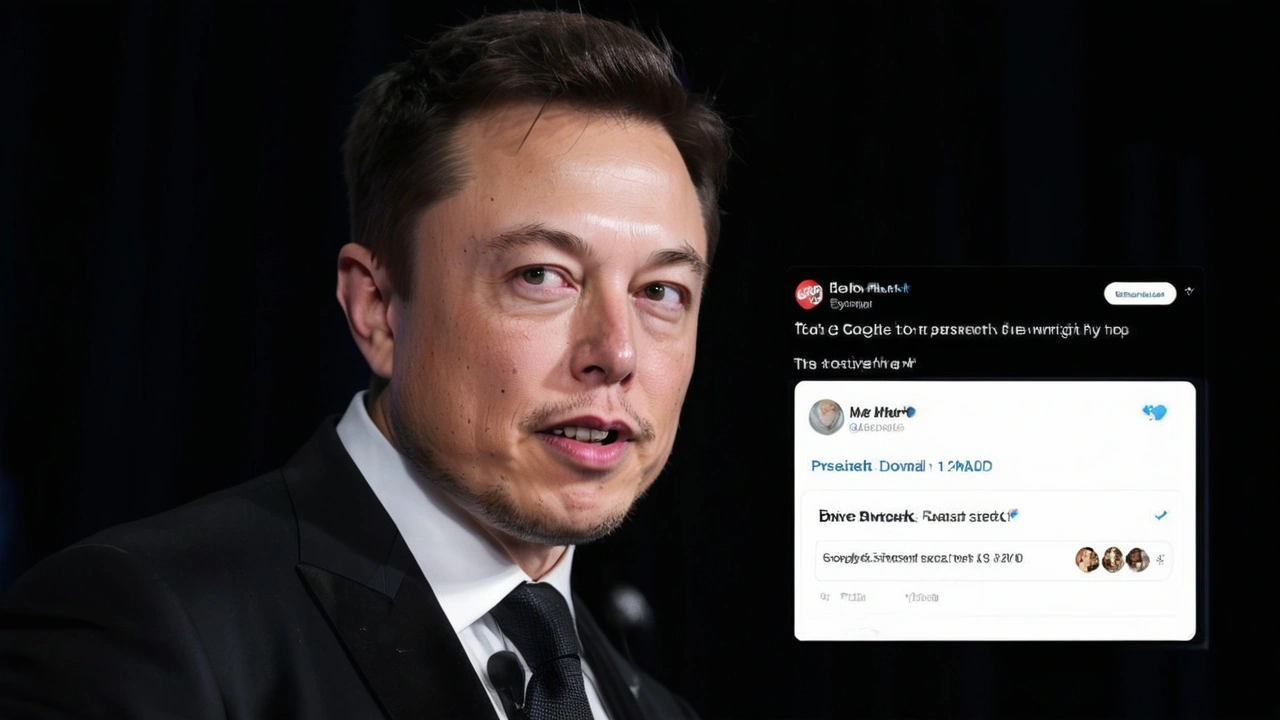Elon Musk's Bold Accusations Against Google
Elon Musk, the entrepreneur known for his leadership in Tesla and SpaceX, has stirred up a significant debate by accusing Google of potential election interference in the 2024 United States Elections. On his popular social media platform, X, formerly known as Twitter, Musk shared a screenshot aimed at showcasing what he perceives as biased search results provided by Google. In the screenshot, a search for 'President Donald' yielded results featuring 'President Donald Duck' and 'President Donald Regan' rather than former President Donald Trump.
Musk's post suggested that Google's actions amounted to electoral meddling, pointing to search result anomalies as evidence of potential bias against Trump. The billionaire warned that such interference could lead to substantial repercussions for the tech giant if proven true. In his typical outspoken manner, Musk's statement resonated with his large following, highlighting his continued support for Trump, especially as the 2024 Election approaches.
Mixed Reactions from Social Media
The social media realm quickly ignited with varied reactions to Musk's incendiary claims. Users on X were divided, with some endorsing Musk's accusations and others dismissing them as unfounded. Supporters echoed Musk's concerns by sharing similar screenshots and anecdotes of how their own searches appeared to omit Donald Trump, suggesting a deeper issue with Google's search algorithms.
On the flip side, detractors of Musk's post labeled his allegations as sensationalistic and without substantial evidence. Critics argued that search results can vary depending on a myriad of factors, including geography, personalized search histories, and even the context of the ongoing news cycle. They emphasized the importance of considering these variables before jumping to conclusions about deliberate bias or interference.
Platforms and Their Potential Influence
The core of Musk's allegation touches on a growing concern about the power and influence of major tech companies in shaping public opinion and potentially, political outcomes. Google, being the preeminent search engine, holds vast sway over the information accessible to billions of users worldwide. This immense responsibility amplifies any accusations of bias or manipulation, raising questions about the accountability and transparency of its algorithms.
Musk's dramatic claim is not the first time Google has faced scrutiny over its practices. Over the years, there have been numerous accusations and investigations into whether search engines and social platforms exercise their power impartially. This particular episode with Musk adds fuel to an already burning debate about the regulation and ethical operation of tech giants in democratic societies.

Investigating the Claims: What the Data Shows
In response to Musk's accusations, various independent verifications were conducted. For instance, a search by WION for 'President Donald' did return results including Donald Trump, suggesting that the issue might not be as clear-cut as Musk's screenshot conveyed. Nevertheless, some users reported different outcomes based on their location, adding a layer of complexity to the discussion.
It is worth noting that Google's search algorithms are designed to respond to user inputs in a way that is optimized for relevancy and user intent. The discrepancies in search results could stem from complex factors like keyword popularity, news prominence, and personalized user data. This makes it difficult to definitively claim bias without a thorough and transparent audit of the algorithms at play.
Musk and His Relationship with Trump
Elon Musk's outspoken support for Donald Trump is well-documented. From voicing endorsement for Trump's presidential run to calling for high-profile resignations in light of alleged threats against Trump, Musk has positioned himself firmly in the former president’s camp. This alliance has led to increased scrutiny of Musk’s statements, with detractors quick to challenge his claims as potentially politically motivated.
In the contentious and highly polarized atmosphere of current American politics, Musk's support for Trump, combined with his immense social influence, has inevitably made him a focal point of controversies. Every statement he makes echoes across his vast following, and his recent comments about Google’s supposed interference are no exception.
The Broader Implications of Tech Influence in Politics
The scenario Musk has described casts a spotlight on broader questions about the intersection of technology and politics. If tech giants like Google can indeed influence electoral outcomes through their control over information dissemination, the implications for democratic processes are profound. This potential influence necessitates robust mechanisms for oversight, ensuring transparency and fairness in how content is curated and presented to users.
Many advocates for digital transparency call for independent audits and greater accountability measures for tech companies to ensure they do not misuse their influence. They argue that the public has a right to understand how these algorithms function, especially given their far-reaching impact on public discourse and opinion formation. Such measures would help mitigate the risks of any potential biases inadvertently shaping significant events like elections.

Looking Forward: Navigating the Future of Search and Social Media
As we move closer to the 2024 US Elections, the role of tech in shaping political narratives will undoubtedly come under increased scrutiny. Musk’s recent allegations against Google might be just one chapter in an ongoing saga that encompasses broader concerns about the integrity and neutrality of digital platforms.
For users, awareness and critical thinking remain essential. Understanding that search results can be influenced by numerous factors can help set realistic expectations about the information encountered online. Simultaneously, persistent advocacy for increased transparency and accountability will be vital in ensuring that tech companies operate in a manner that upholds democratic values.
In conclusion, while Elon Musk’s claims against Google may or may not hold substantive weight, they certainly reignite crucial discussions about the power dynamics between technology and politics. Whether you see Musk as a champion of free speech or a provocateur of controversy, his ability to spark dialogue on pressing issues remains as potent as ever.
